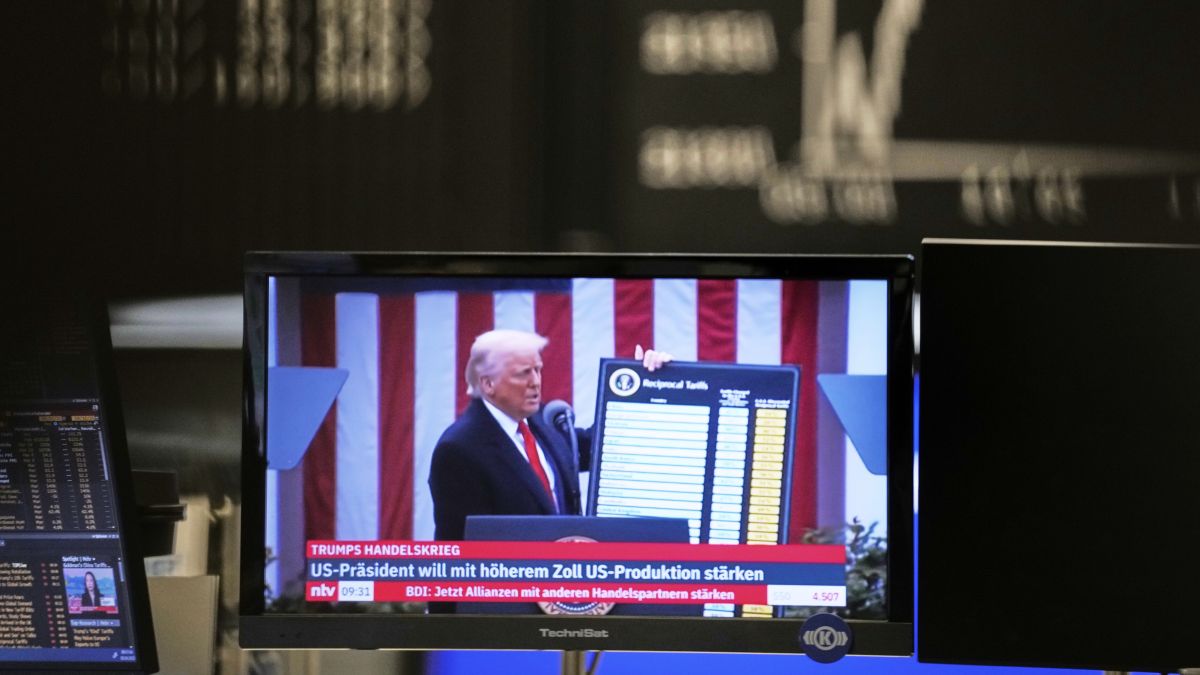US President Donald Trump was nicknamed TACO or ‘Trump always chickens out’ for his inconsistent policies and frequent U-turns on tariffs. However, it turns out that he actually managed to raise nearly $50bn in additional customs revenues at little cost. It happened as most of the USA’s trading partners refrained from hitting back at the world’s largest economy.
Four months after President Trump kicked off his trade war , only China and Canada have pushed back against Washington’s steep tariffs: a minimum 10 per cent on global imports, 50 per cent on steel and aluminium, and 25 per cent on cars.
Meanwhile, US customs revenue soared to a record $64 billion in the second quarter, a $47 billion jump from the same period last year, according to US Treasury data released Friday (July 11).
China’s tariff retaliation falls flat
China’s retaliatory tariffs on US goods have been the most significant, but they’ve had limited impact, with customs income rising just 1.9 per cent in May 2025 compared to the previous year.
Canada’s response has been minimal, and with their second-quarter customs data still pending, the global tariffs on US exports remain a tiny fraction of America’s revenue haul.
Are US consumers paying this additional duty?
Supply chain experts point out that Trump’s tariffs aren’t hitting US consumers alone.
International brands are spreading the cost increases globally to soften the blow in the American market.
Simon Geale, executive vice-president at Proxima, a Bain & Company-owned supply chain consultancy, was quoted as saying by Financial Times that major companies like Apple, Adidas, and Mercedes are strategising to absorb some costs.
“Global brands can try and swallow some of the tariff cost through smart sourcing and cost-savings but the majority will have to be distributed across other markets, because US consumers might swallow a 5 per cent increase, but not 20 or even 40,” Geale said.
Impact Shorts
More ShortsDespite US tariffs reaching levels not seen since the 1930s, the global response has been cautious, avoiding a tit-for-tat spiral that crippled trade between the world wars, reported the FT.
Economists attribute this restraint to America’s dominance as the world’s largest consumer market and Trump’s threats to double down on tariffs against defiant nations.
Other countries chose pragmatism over ego
For most countries, holding back isn’t cowardice—it’s pragmatic.
Capital Economics modeling shows a high-escalation trade war with 24 per cent reciprocal tariffs could slash global GDP by 1.3 per cent over two years, compared to just 0.3 per cent if tariffs stay at 10 per cent.
“Unlike the 1930s when countries had more balanced trading relationships, today’s world features a hub-and-spoke system with the US at the centre,” said Marta Bengoa, professor of international economics at City University of New York.
“That makes retaliation economically less desirable for most countries, even when it might be politically satisfying.”
Alexander Klein, professor of economic history at Sussex University, added that short-term concerns—like avoiding tariff exposure and curbing inflation—are driving negotiations with Trump, giving the White House the upper hand.
“I’d like to think leaders were learning the lessons of history, but I fear that’s optimistic. More likely, the EU, Canada and many other governments fear the hit to global supply linkages and inflation from escalation,” he said. “Trump cares less about that, so is taking advantage.”


)

)
)
)
)
)
)
)
)



